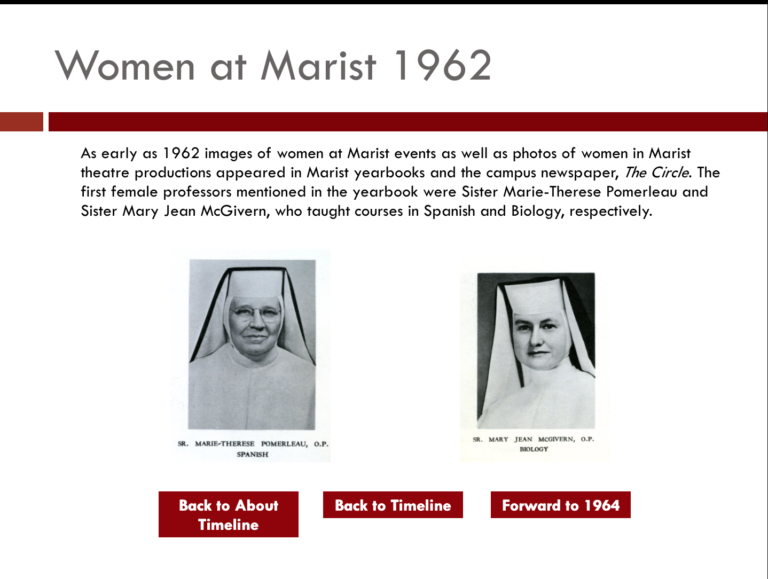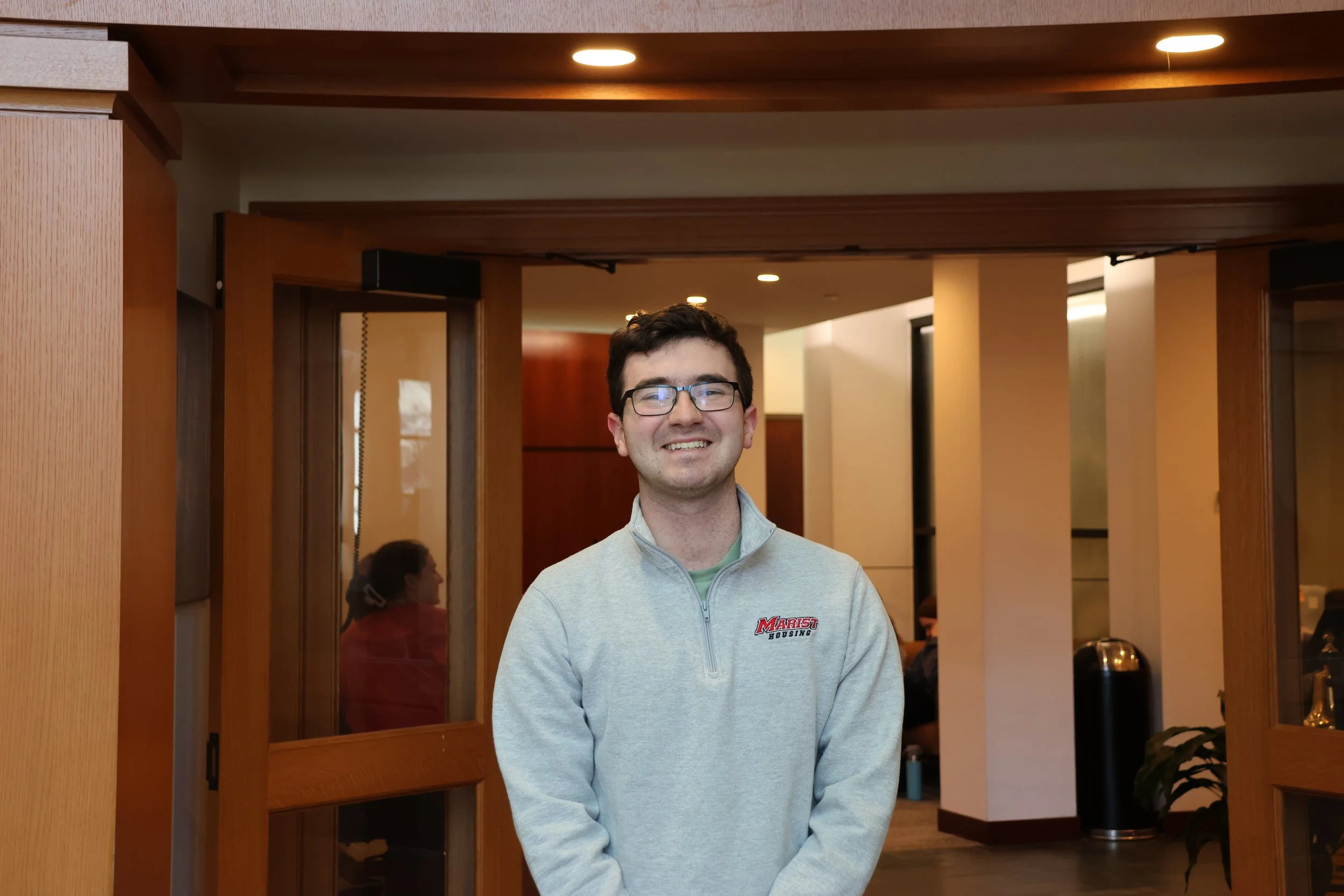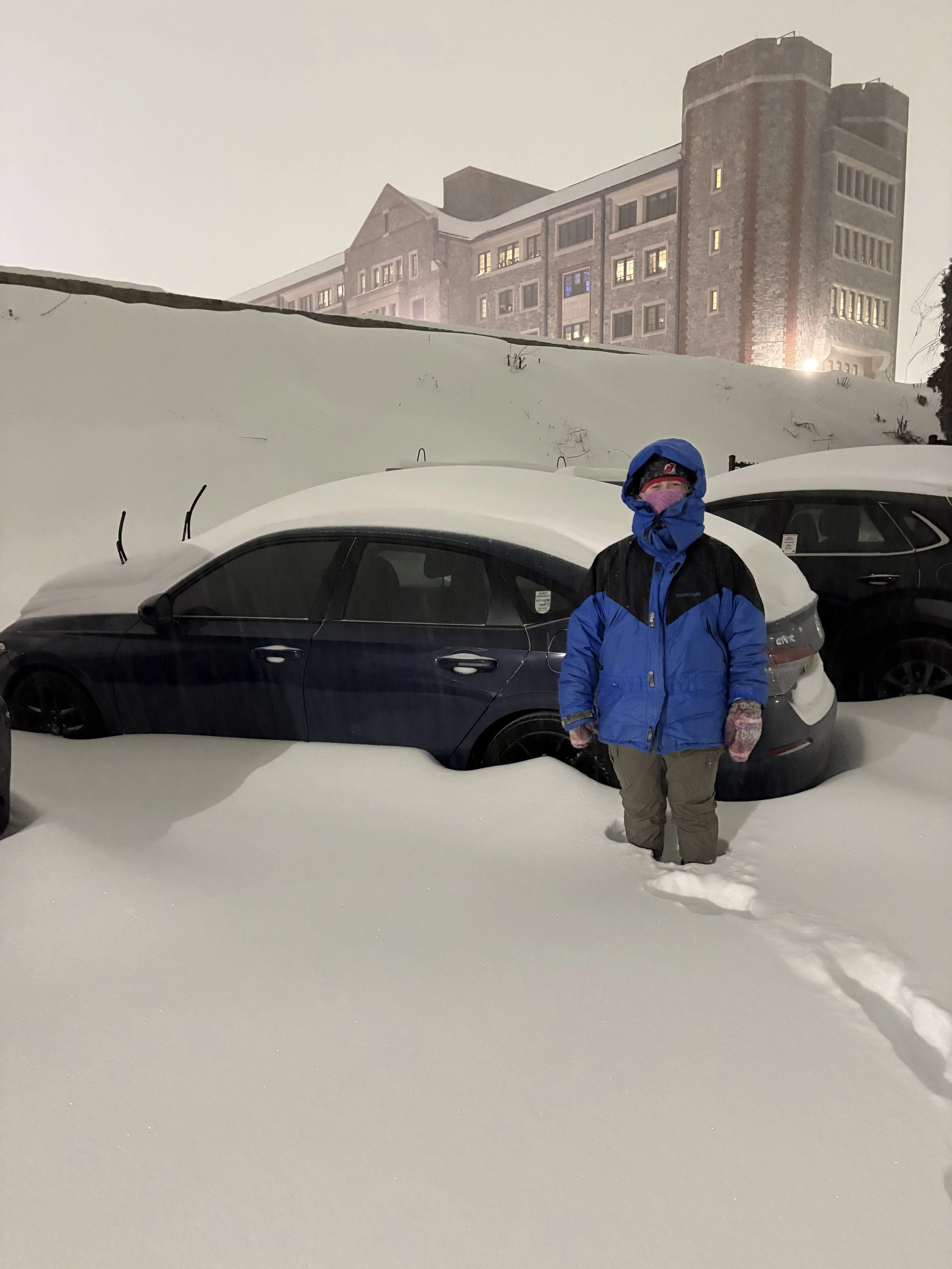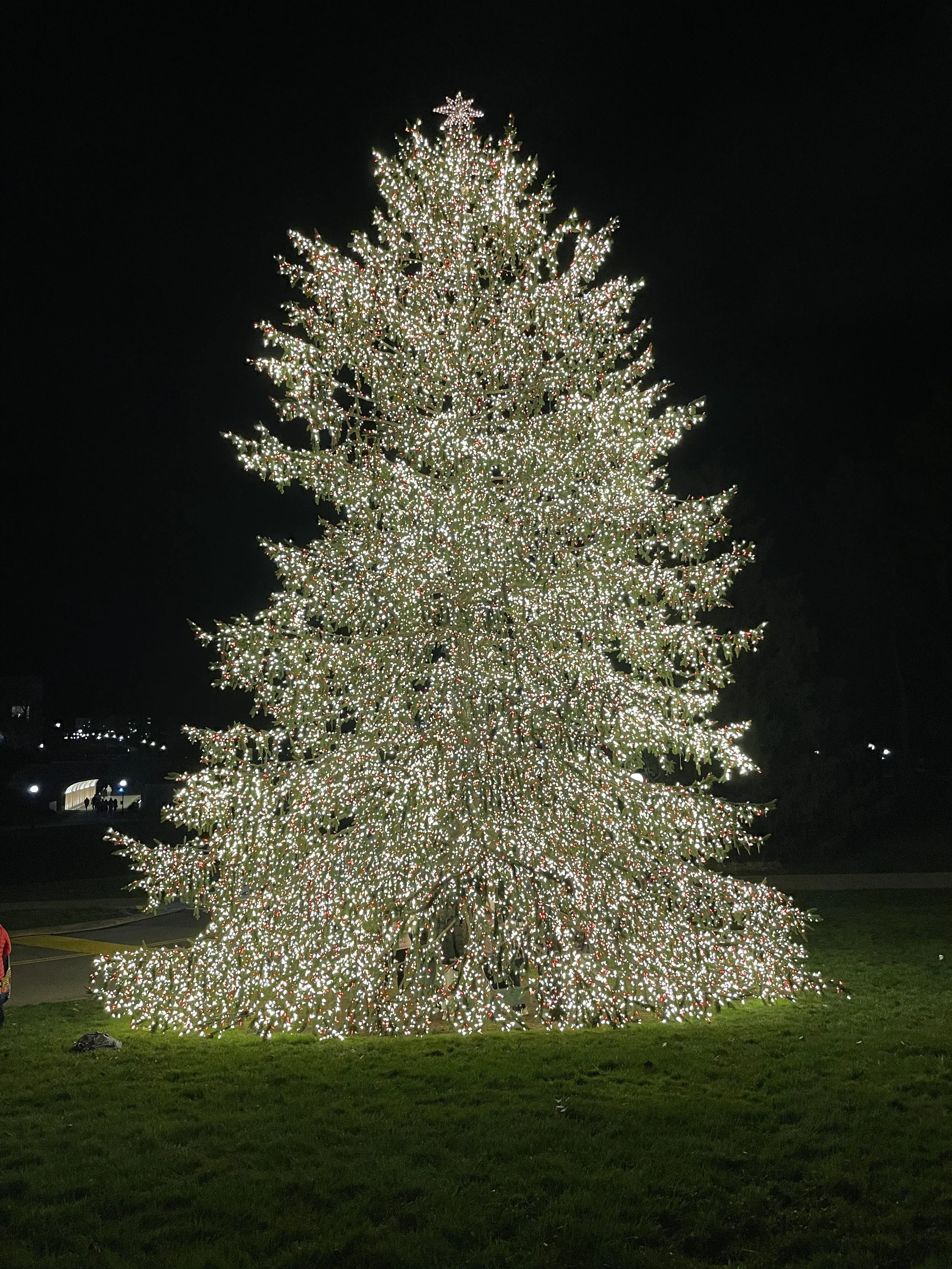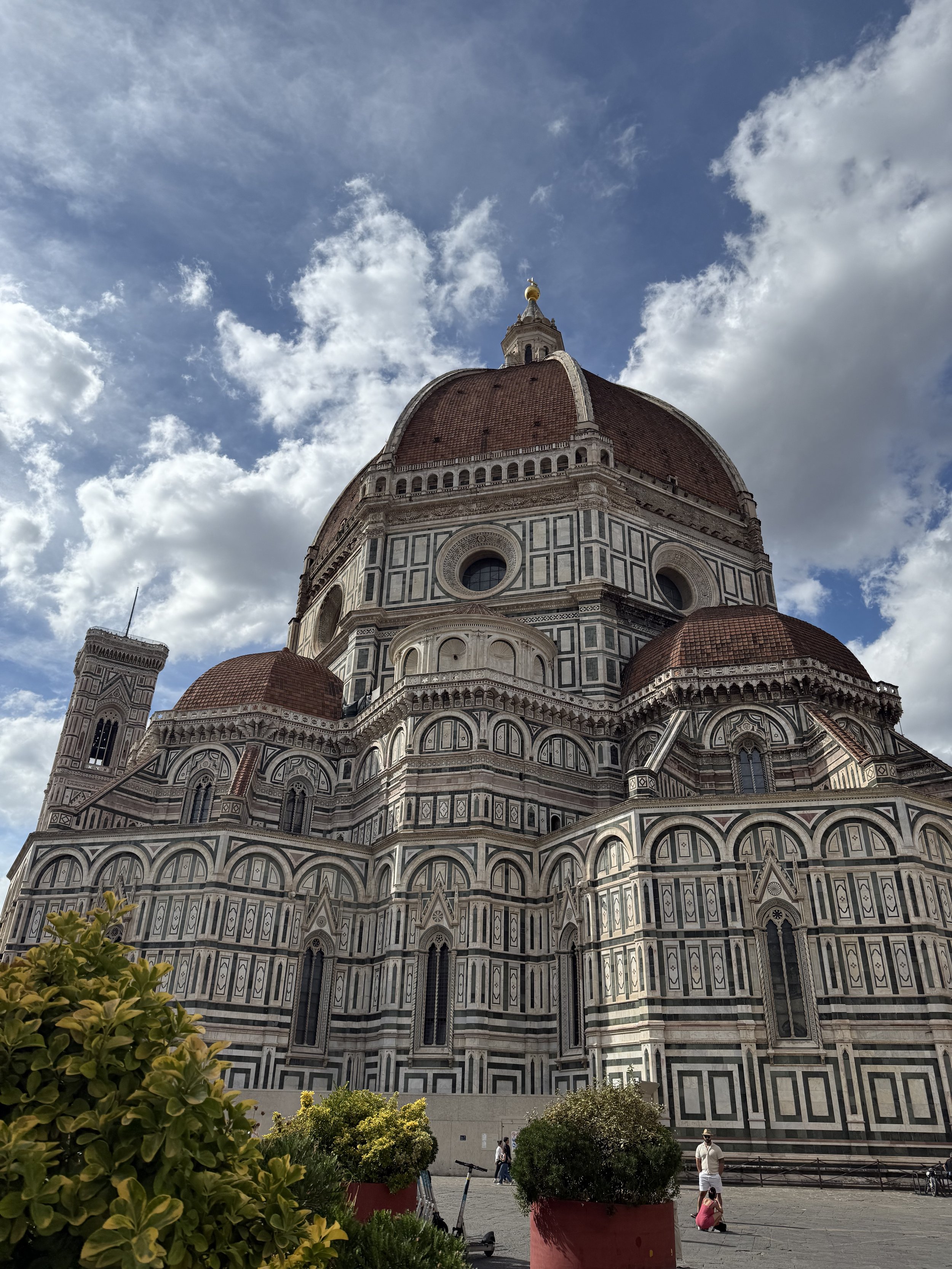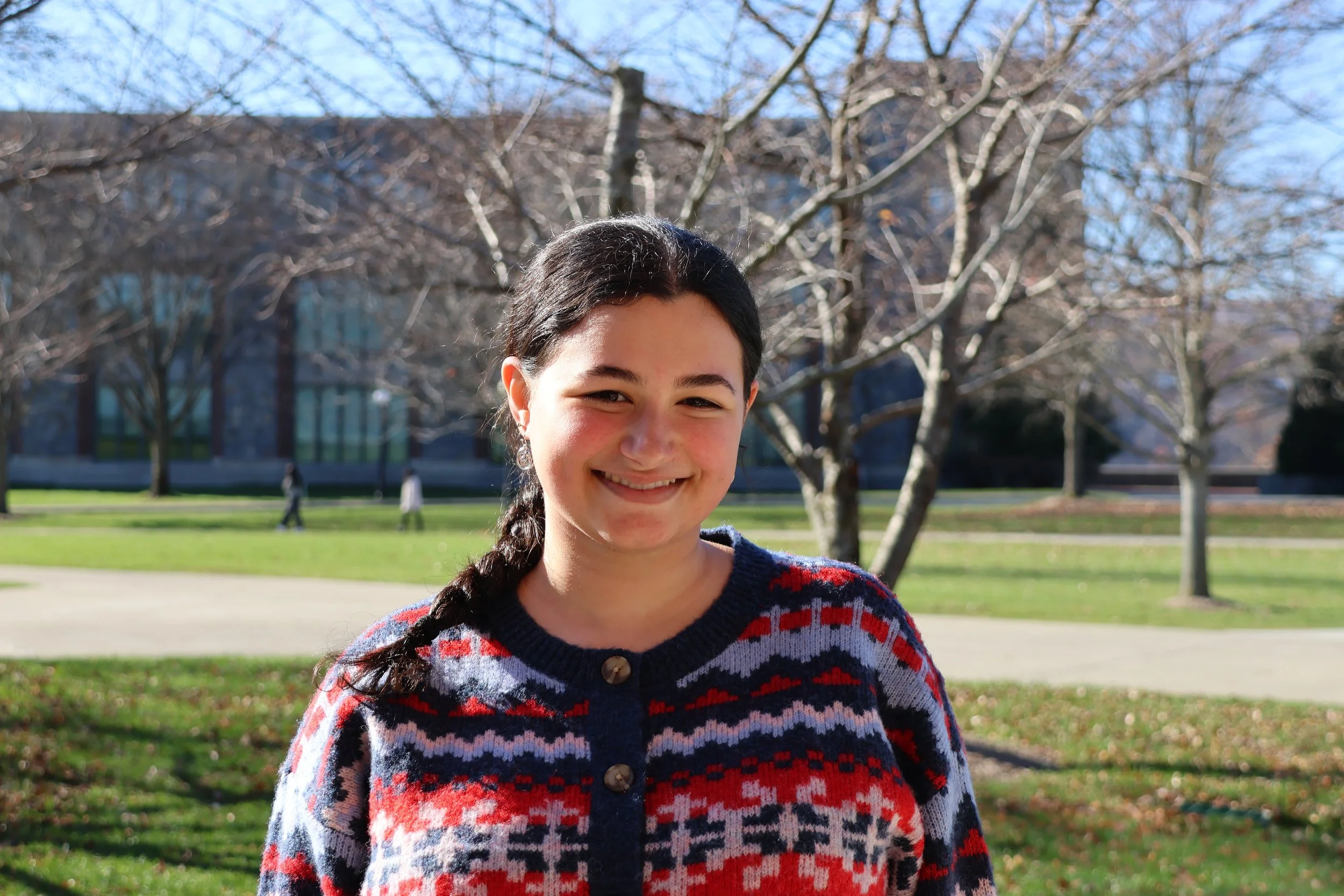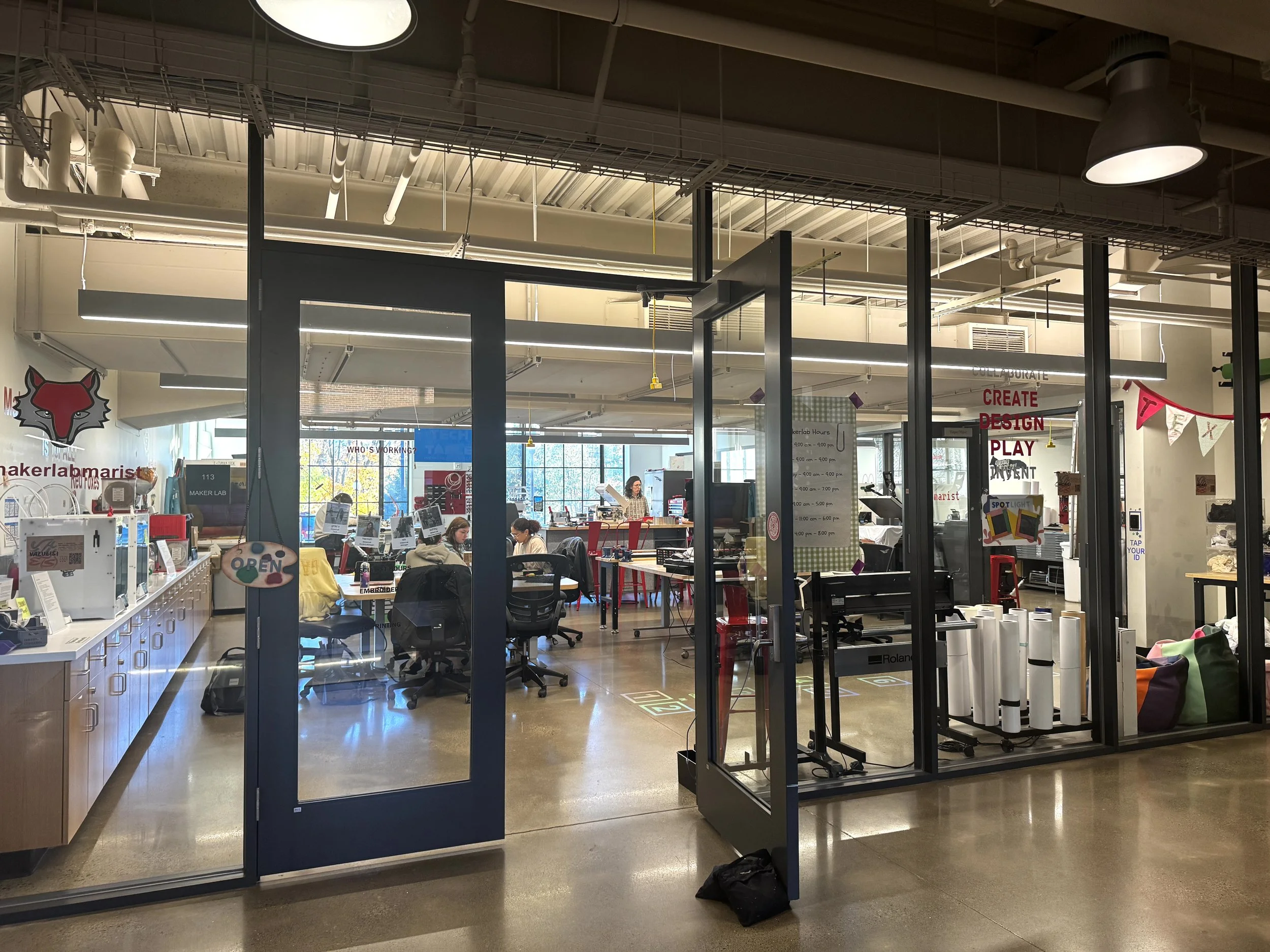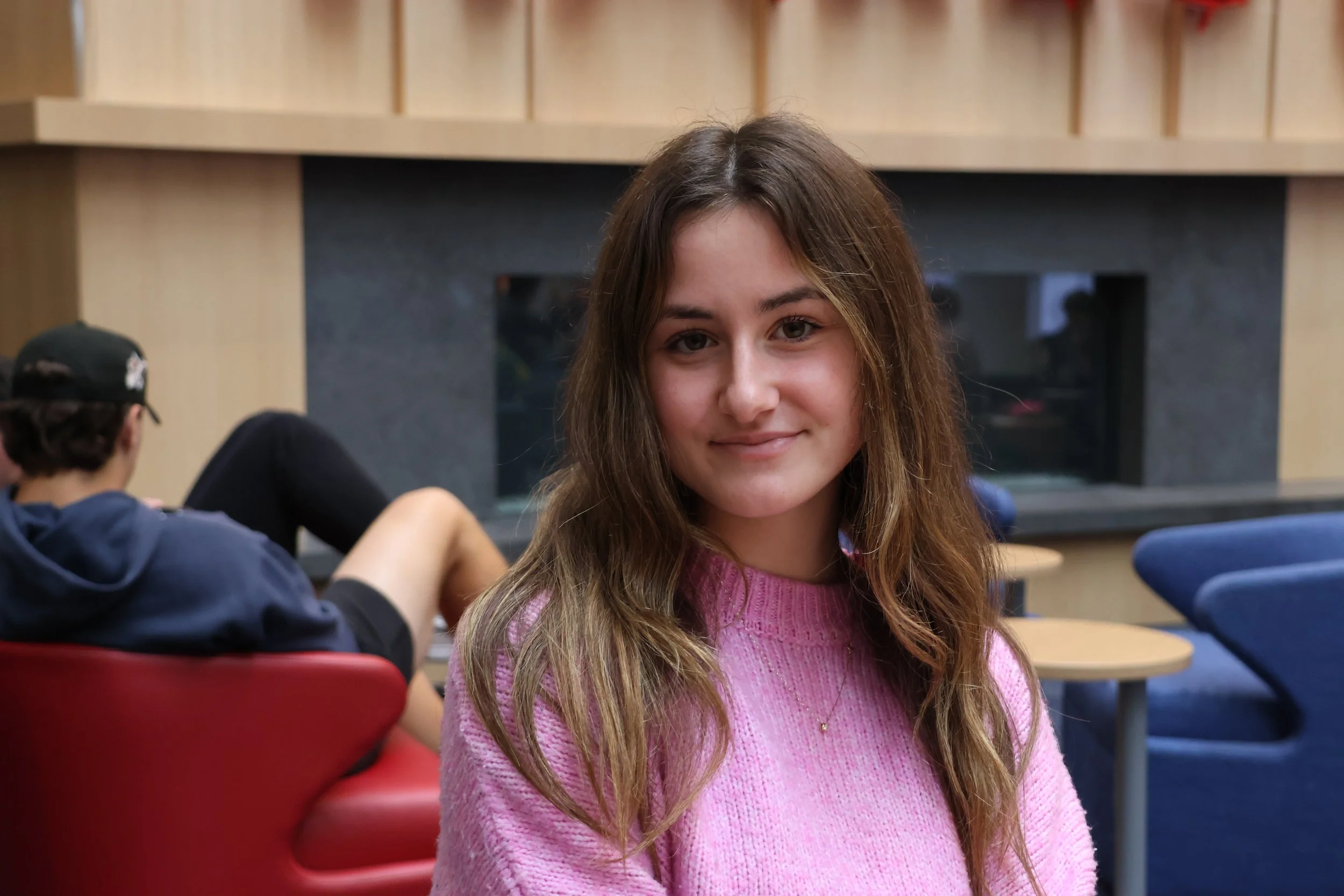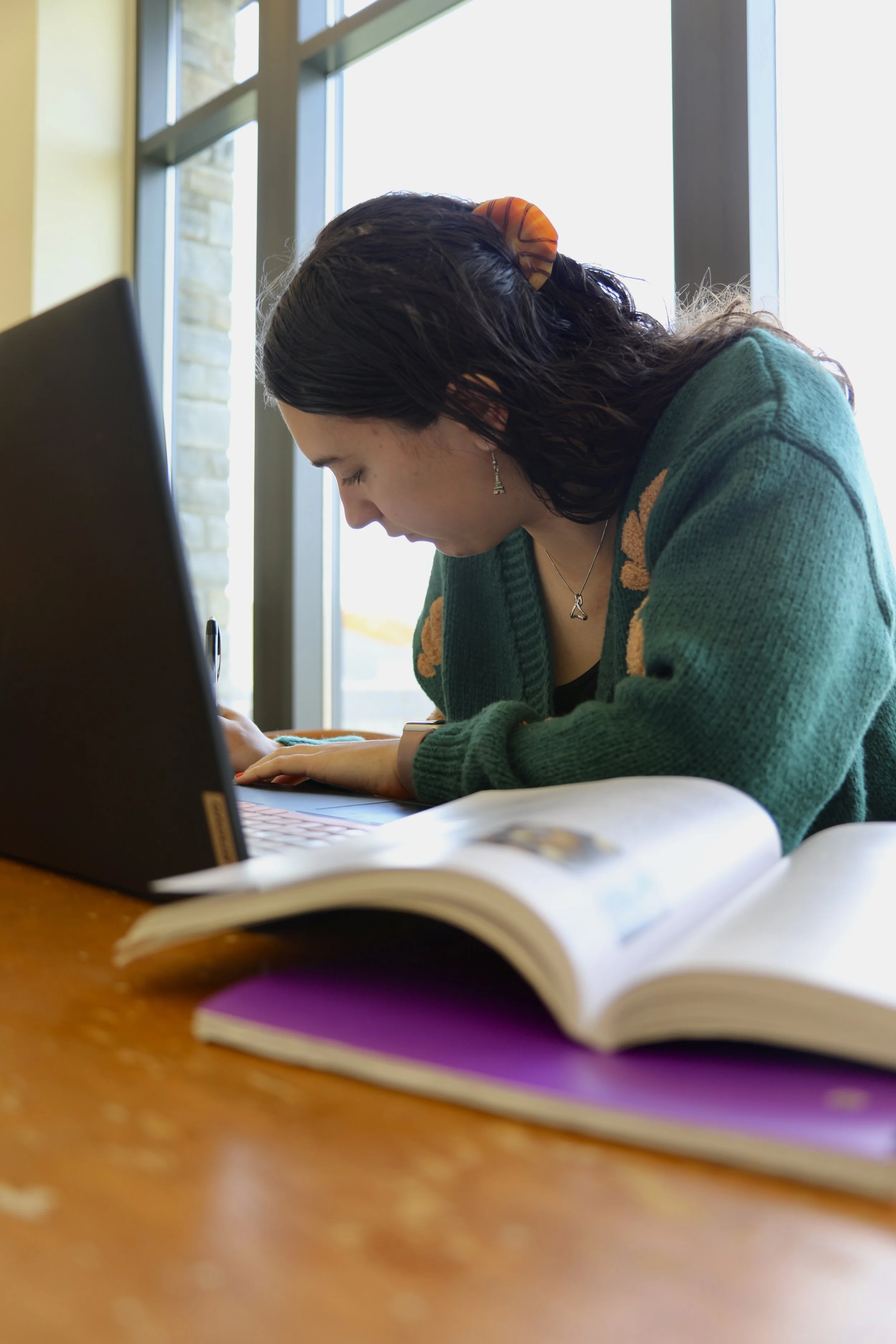Marist Senior Tracks Growth in Women's Studies
By Dominique Mcintee
Passions and academics converge at Marist. Our student climate plays on curiosity and exploration, enabling us to pursue our interests in and out of the classroom. For Molly Scott ’17, this environment catalyzed her inspiration to create “Women at Marist 1960-Present,” an interactive timeline of women’s activities at Marist from past to present; it serves as a vital and unique resource for both professors and students.
What began as a research idea for her introductory course transformed into a comprehensive yearlong project that merged her academic learning and true passion for the subject itself. Scott’s exhibit is designed to track the development of the women’s studies program as well as female students and faculty members. Scott notes that similar projects across different universities, San Diego State College in particular, inspired her, as the school is recognized for implementing the first women’s studies program in the country. Working with ancient newspaper clippings, antiquated editions of The Circle, and other research, Scott incorporated an array of sources to produce a cohesive and clear showcase of her understanding of and love for the subject.
Molly Scott, '17
Scott possesses both fervor and determination when it comes to women’s studies, now known as women, gender, and sexuality studies, at Marist. She embraces her keen knowledge on these subjects to convey that this track has contributed to her reaching academic goals and personal growth; however, Scott did not recognize this as her true passion until later on in her freshman year.
“When I first enrolled at Marist, I was a biology major, but after a couple of semesters, I realized I was miserable. When I switched to my English major, I decided to declare my WGSS minor because I had always wanted to, but was not able to before,” Scott remarks.
Scott’s passion has blossomed ever since, manifesting with each opportunity she continues to seek within this study. She finds her minor thought-provoking, providing a level of independence and challenges that allow her to think critically of what she calls “the boxes we construct for men and women.” Her passion stems from what she has learned, such as the concerns and unique facts that build cultural resonance and impact. Scott comments that “there are so many issues facing women, people of color, and the LGBQT+ community. Sexism and rape culture, systemic racism, and homophobia are all issues that are affecting people every day in covert and overt ways.”
“A lot of women will say that they have never personally experienced sexism, but the thing is, they just aren’t aware of the ways which sexism can manifest [itself]. Women’s studies courses can help us recognize our own personal privilege, and how these issues can affect others,” Scott adds.
Scott’s project has enabled her success and opened new doors. Scott’s project was offered space in the James A. Cannavino Library as a physical exhibit. With her project now featured on Marist's website, Scott has been honored on the Marist WGSS homepage and at the 25th Annual Women & Society Conference held at Marist in Fall 2016. In addition, her exhibit helped her gain a summer internship at a local non-profit, along with rewarding, positive feedback from her professors and peers. More notably, Scott comments on how the project shaped her as an undergraduate student and as a young woman.
“The exhibit helped me become a better researcher, collaborator, and presenter. I sincerely feel more confident in my abilities, and I’m excited to continue doing similar work in the future,” she says.
Scott will soon graduate and leave Marist to embark on a new journey, where she’ll find new passions but always maintain a special bond with her undergraduate WGSS work. For now, she hopes that her exhibit remains paramount and influential.
“I just hope people find this research interesting and useful. I would love for a student to use my timeline to inform their own research on topics they find interesting,” she comments. “I hope that my work inspires students to take on similar projects, and expand on my own findings.”
